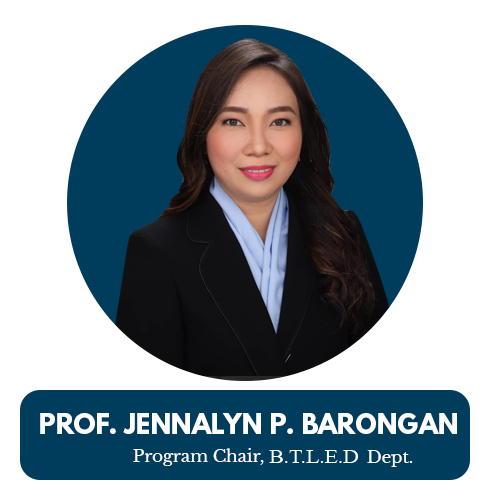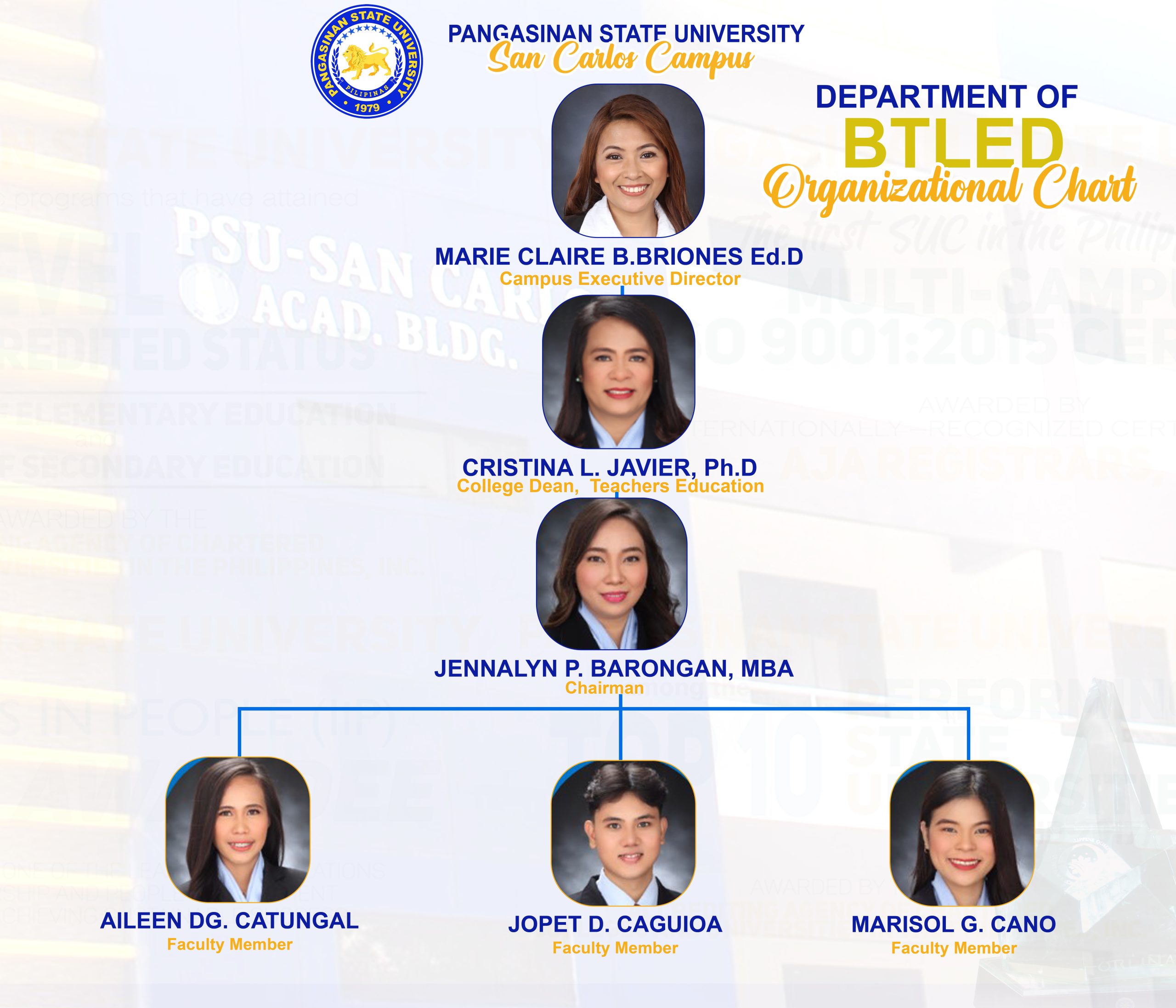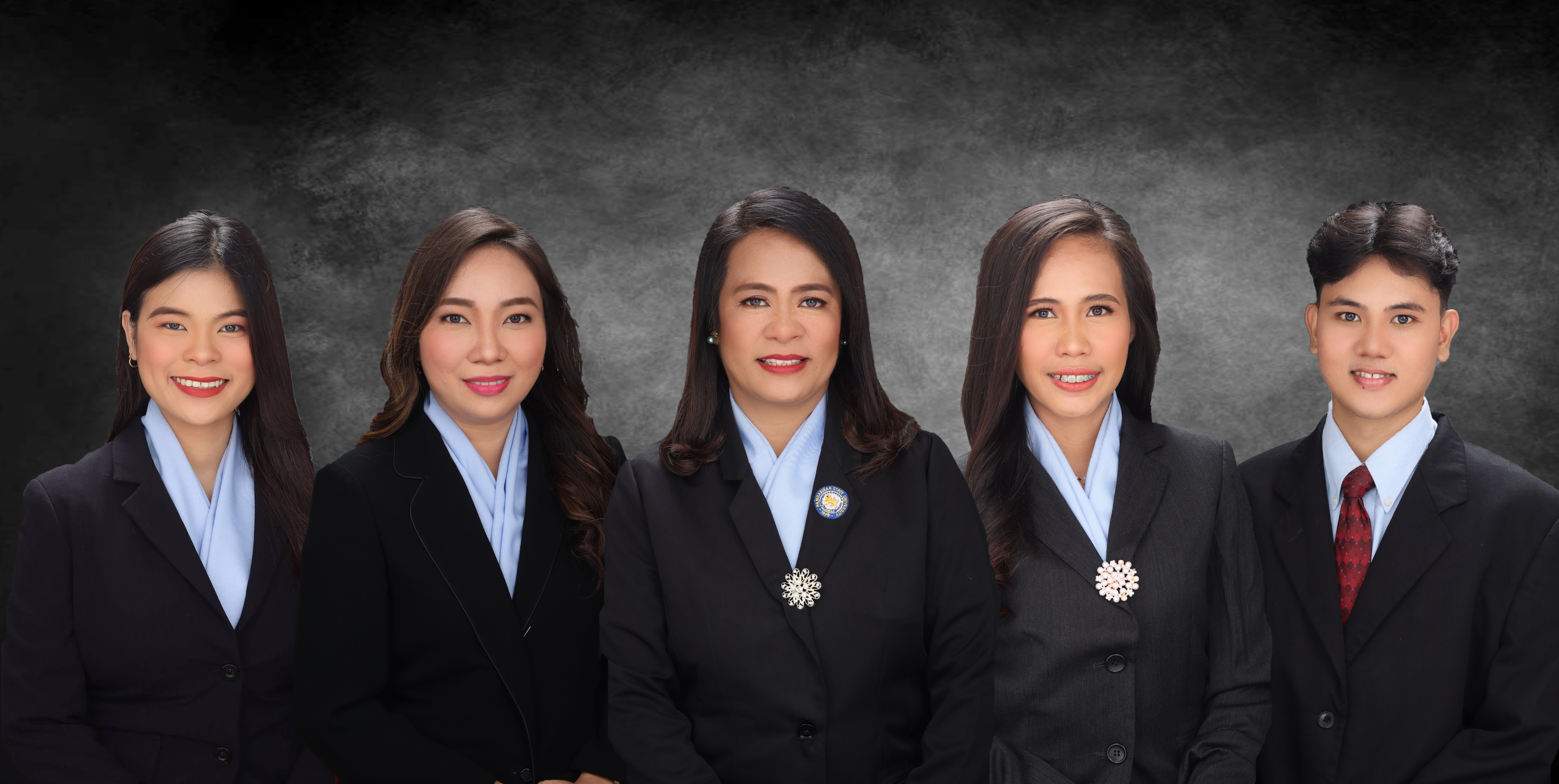Welcome to the BTLED Department!

It is with pleasure that I welcome you to the BTLED Department!
The BTLED Department is committed to providing the best quality learning for our students. We will ensure there is effective teaching and learning for every student. With the school facilities and dedicated teachers and staff, we do our best to provide the best educational opportunities for students to nurture their interests, talents and passions.
The Bachelor of Technology and Livelihood Education is designed to equip students with fundamental skills and in-depth knowledge to become highly competent teachers. The program aims to provide students with adequate competencies essential for effective teaching and even become accredited TVET trainers and Assessors.
With the fast-changing and competitive world, we participate in training programs to keep abreast of the latest trends and teaching strategies to empower us to provide the best education for our students. We strive to support knowledge, help students to acquire skills and develop a strong character to help prepare them for their future aspirations.
The BTLED Department will continue to work with perseverance and dedication towards quality and excellence.
Have a meaningful virtual tour with the BTLED family!

BTLED Faculty Member

The BTLEd program aims to develop highly competent and motivated teachers in Technology and Livelihood Education for Grades 4-8. The technology livelihood education curriculum shall impart a body of knowledge, skills, attitudes, values and experiences that will provide prospective Grade 4-8 EPP/TLE Teachers with the necessary competencies essential for effective teaching and at the same time are accredited TVET Trainors and Assessors.
Program Outcomes
Institutional Learning Outcomes (ILO)
- Demonstrate through institutional mechanisms, systems, policies, and processes which are reflective of transparency, equity, participatory decision making, and accountability;
- Engage in relevant, comprehensive and sustainable development initiatives through multiple perspectives in decisions and actions that build personal and professional credibility and integrity;
- Set challenging goals and tasks with determination and sense of urgency which provide continuous improvement and producing quality outputs leading to inclusive growth;
- Exhibit life-long learning and global competency proficiency in communication skills, inter/interpersonal skills, entrepreneurial skills, innovative mindset, research and production initiatives and capability in meeting the industry requirements of local, ASEAN and international human capital market through relevant and comprehensive programs;
- Display, socially and environmentally responsive organizational culture, which ensures higher productivity among the university constituents and elevate the welfare of the multi-sectoral communities and;
- Practice spiritual values and morally upright behavior which promote and inspire greater harmony to project a credible public image..
Common to all programs in all types of schools (CTS)
- Articulate and discuss the latest developments in the specific field of practice. (PQF level 6 descriptor)
- Effectively communicate orally and in writing using both English and Filipino.
- Work effectively and independently in multi-disciplinary and multi-cultural teams (PQF level 6 descriptor)
- Act in recognition of professional, social, and ethical responsibility.
- Preserve and promote “Filipino historical and cultural heritage” (based on RA 7722)
Common to the discipline (CD)
- Articulate the rootedness of education in philosophical, socio- cultural, historical, psychological, and political contexts.
- Demonstrate mastery of subject matter/discipline.
- Facilitate learning using a wide range of teaching methodologies and delivery modes appropriate to specific learners and their environments.
- Develop innovative curricula, instructional plans, teaching approaches, and resources for diverse learners.
- Apply skills in the development and utilization of ICT to promote quality, relevant, and sustainable educational practices.
- Demonstrate a variety of thinking skills in planning, monitoring, assessing, and reporting learning processes and outcomes.
- Practice professional and ethical teaching standards sensitive to the local, national, and global realities.
- Pursue lifelong learning for personal and professional growth through varied experiential and field based opportunities.
Specific to a sub-discipline and a major (SM)
- Demonstrate the competencies required of the Philippine TVET Trainers -Assessors Qualifications Framework (PTTQF).
- Demonstrate broad and coherent, meaningful knowledge and skills in technology and livelihood education.
- Apply with minimal supervision specialized knowledge and skills in technology and livelihood education.
- Demonstrate higher level literacy, communication, numeracy. critical thinking, learning skills needed for higher learning.
- Manifest a deep and principled understanding of the learning processes and the role of the teacher in facilitating these processes in their students.
- Show a deep and principled understanding of how educational processes relate to larger historical, social, cultural, and political processes.
- Apply a wide range of teaching process skills (including materials Curriculum development, lesson planning, development, educational assessment, and teaching approaches).
- Reflect on the relationships among the teaching process skills, the learning processing in the students, the nature of the content/subject matter, and other factors affecting educational processes in order to constantly improve their teaching knowledge, skills and practices.
Common to a horizontal type as defined in CMO 78 46, 2012 (CHT)
- BTLEd graduates of professional institutions demonstrate a service orientation in one’s profession.
- BTLEd graduates of colleges participate in various types of employment, development activities, and public discourses, particularly in response to the needs of the communities one serves.
- BTLEd graduates of universities participate in the generation of new knowledge or in research and development projects in technical education.
